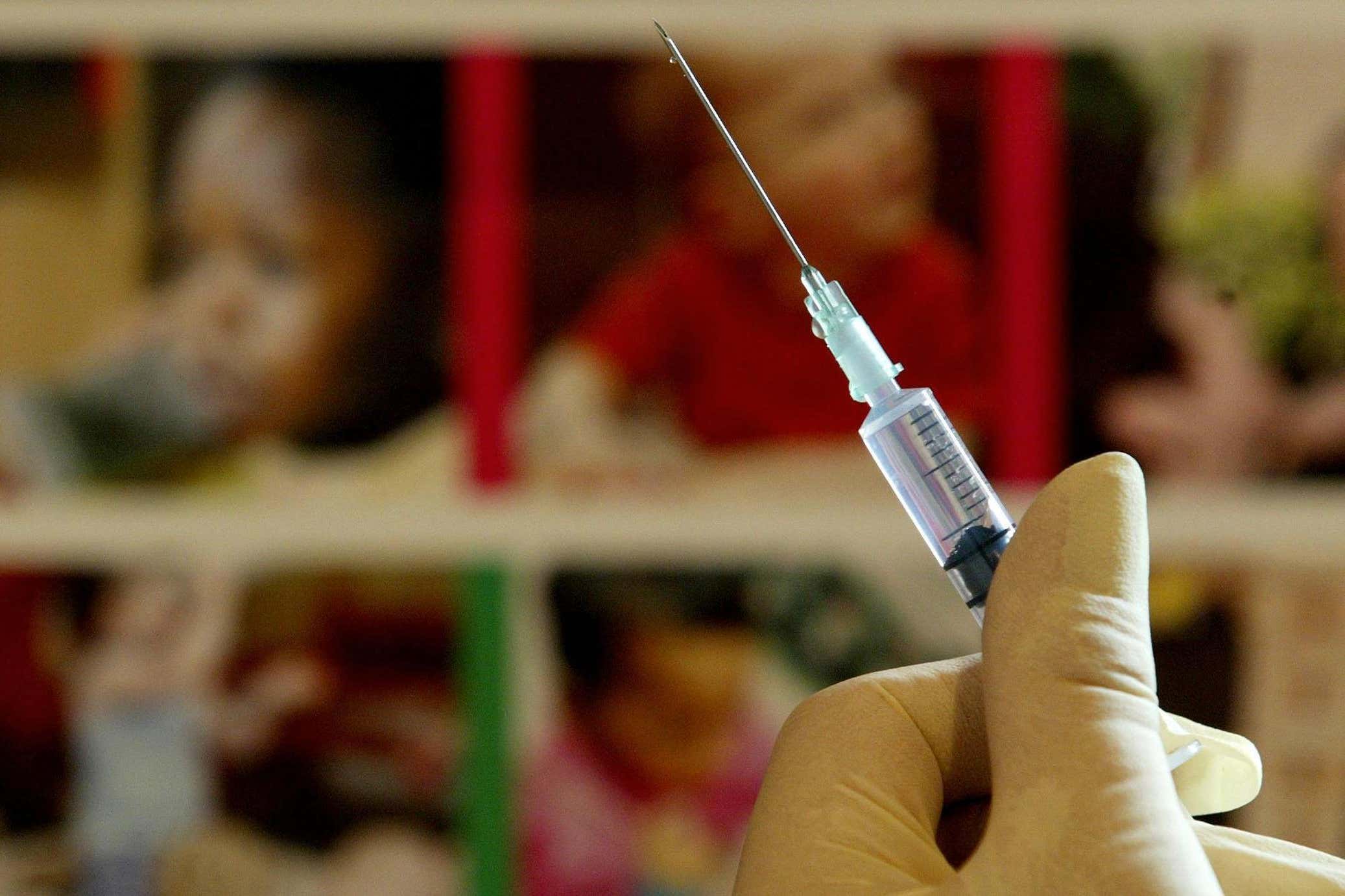Young adults urged to get MMR jabs amid rising cases
The NHS is writing to young adults in the West Midlands, Manchester and London.

Your support helps us to tell the story
From reproductive rights to climate change to Big Tech, The Independent is on the ground when the story is developing. Whether it's investigating the financials of Elon Musk's pro-Trump PAC or producing our latest documentary, 'The A Word', which shines a light on the American women fighting for reproductive rights, we know how important it is to parse out the facts from the messaging.
At such a critical moment in US history, we need reporters on the ground. Your donation allows us to keep sending journalists to speak to both sides of the story.
The Independent is trusted by Americans across the entire political spectrum. And unlike many other quality news outlets, we choose not to lock Americans out of our reporting and analysis with paywalls. We believe quality journalism should be available to everyone, paid for by those who can afford it.
Your support makes all the difference.More than 900,000 young people who did not get their measles, mumps and rubella (MMR) jab as children are being invited to take part in a catch-up campaign amid a rising number of measles cases.
The NHS is writing to 19 to 25-year-olds in London, Greater Manchester and the West Midlands – inviting them to book an appointment.
These young adults would have been eligible for a jab when the vaccination rates began to fall in the late 1990s and early 2000s.
Coverage of the MMR started to decline following a 1998 report by Andrew Wakefield which falsely linked the jab with autism, according to a UK Health Security Agency (UKHSA) 2023 measles briefing document.
Even though the claim was discredited, and Wakefield struck off the medical register, the vaccination programme took years to recover.
Now MMR vaccine coverage is the lowest it has been for more than a decade, with just 85% of youngsters having both doses of the jab before they start school aged five.
Amid a current rise in cases across England, health officials launched a catch-up campaign initially targeting six to 11-year-olds and then 11 to 16-year-olds in London and the West Midlands, and now 19 to 25-year-olds in specific regions.
People can get their jab at their GP surgery, while some areas are also running pop-up vaccination clinics in libraries, university campuses and sports clubs.
Steve Russell, NHS England’s director of vaccinations and screening, said: “Measles is one of the most infectious diseases in the world and can cause serious harm to adults and children of all ages.
“But the NHS MMR vaccine gives life-long protection against becoming seriously unwell, so with cases of measles on the rise, it is not worth the risk of going without this vital protection.
“Measles, mumps and rubella are preventable, but catching them is easy when people are unvaccinated, so I urge people to come forward and get the MMR vaccine sooner, rather than later.”
Dr Gayatri Amirthalingam, consultant medical epidemiologist for immunisation at UKHSA, said: “Anyone who is not vaccinated against measles can catch it.
“Being unvaccinated also means you risk spreading the disease to others, including those at greatest risk of becoming seriously ill – like infants, who aren’t able to receive their MMR vaccine until their first birthday, pregnant women and those with a weakened immune system.
“The MMR jab also protects against complications from mumps in young adults. I strongly urge anyone who’s not vaccinated to protect both themselves and those more vulnerable around them.”
There have been 733 cases of measles in England since October last year.
The current outbreak was initially in Birmingham and the West Midlands – but cases have now also been identified in the North West, London, East Midlands and Yorkshire and the Humber.